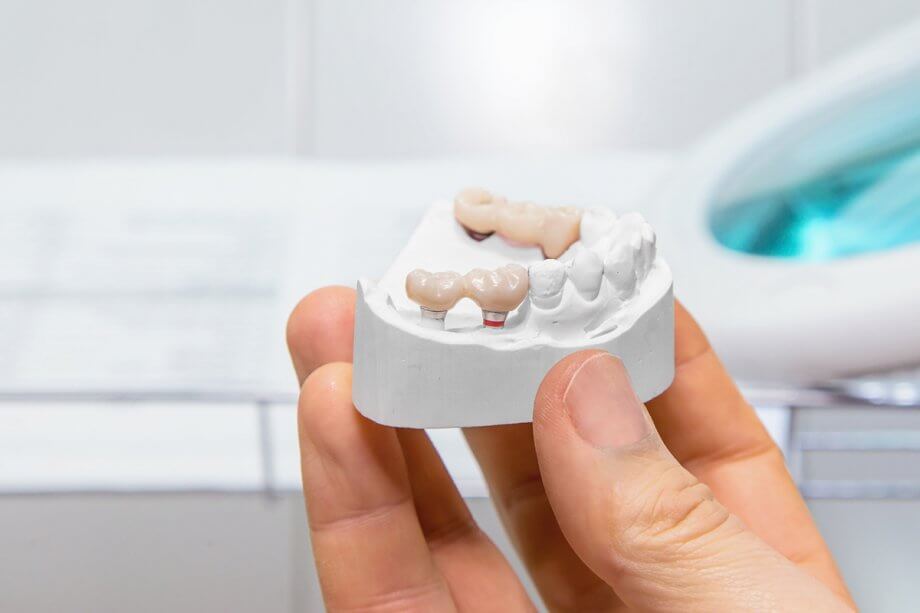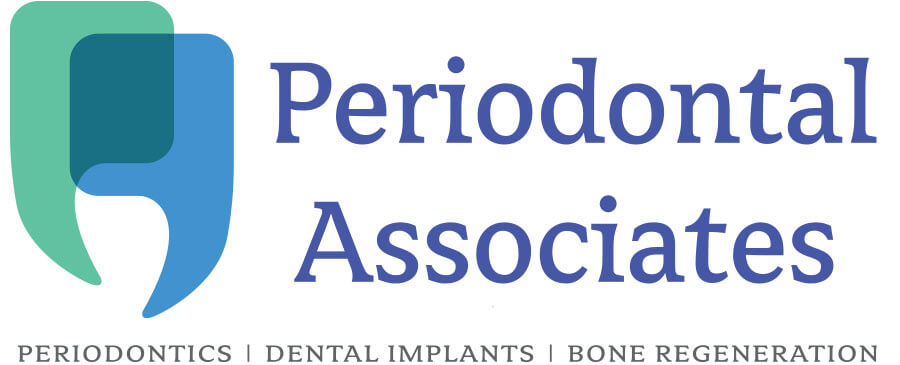
Dental bridges are incredibly effective dental restorations that fill gaps in the mouth left by missing teeth. On average a dental bridge will last more than seven years. However, many people find that a dental bridge can last much longer, provided they practice excellent oral hygiene habits, and the bridge is placed correctly. Unfortunately, for various reasons, the bridge may need to be replaced sooner. Here’s what to know about replacing and recementing a dental bridge.
Reasons Your Dental Bridge May Need to Be Replaced
A dental bridge is a fixed dental restoration, rather than a removable restoration such as a full or partial denture. Dental bridges attach to crowns to fill the space where teeth are missing. The crowns cover existing teeth on either side of the space between teeth, or they are attached to dental implants.
Between the two crowns is a false tooth (pontic) that replaces your missing tooth/ teeth. For most people, this restorative prosthesis works perfectly. But in other cases, problems may develop over time that will require the removal of your dental bridge. These problems include:
- Tooth decay
If the natural teeth underneath the crowns begin to decay, the stability of the bridge becomes compromised. Tooth decay beneath the crown is often the result of a bridge that doesn’t fit properly. An ill-fitting bridge can lead to a buildup of tartar, and calculus underneath the crown, damaging the natural tooth. This will require the removal and replacement of the bridge.
- Gum Disease
Gum disease, such as gingivitis or the more severe form of the disease, periodontitis can require the removal of a dental bridge. Unfortunately, having a dental bridge does increase your risk of developing gum disease. Most people will be able to prevent it, with regular dental cleanings, brushing twice a day, and flossing daily. However, some people are naturally more susceptible to gum disease than others. Mild gum disease, if caught early, can often be resolved without removing your bridge. Advanced gum disease will likely require the removal of your dental bridge.
- Cracks in Crowns or False Tooth
If you develop a crack (fracture) in either of your crowns or the false tooth between the crowns, you may need to have your bridge removed. Small fractures can likely be repaired without removing the entire bridge. But a significant crack in any of the foundational components of a dental bridge will require removal.
About Dental Cement
Loose or poor-fitting bridges are the easiest to remove. These can often be recemented after removal. If you need to have a bridge removed for another reason, including to treat periodontitis or tooth decay under a crown, your bridge and adjacent teeth are at risk of damage during the removal process. This is because dental cement is specifically designed to create an incredibly strong bond that lasts for many years. In these cases, removing the bridge will require the use of a drill, and it’s unlikely the bridge can be recemented. In this case, you will likely need a new bridge or consider an alternate solution such as dental implants.
How To Care for Your Dental Bridge
Dental bridge failure is often the result of poor oral hygiene habits. Failing to brush, floss, and see your dentist for regular cleanings can lead to decay, and the destabilization of teeth. To avoid this, see your dentist at least twice a year for cleanings, and schedule an appointment if you have any pain, or if your bridge feels loose.
Chewing on hard items, such as pens, candies, or ice can also lead to bridge failure, as these habits often lead to fractures in the crowns or the artificial tooth. These habits should be stopped immediately.
Grinding your teeth when stressed, or when sleeping can also damage a dental bridge. If you grind your teeth, ask your dentist about a night guard to protect your teeth.
Treatment for Gum Disease & Dental Implants in Framingham and Newton, MA
If you’ve been diagnosed with gum disease, or want to learn more about dental implants to replace missing teeth, request an appointment at Periodontal Associates today. Our practice uses the latest innovations and technology, including laser dentistry to treat gum disease, including reducing pocket depth to prevent recurring gum disease. Schedule a consultation today!
Framingham Office: 508-875-6185
Newton Office: 617-964-6185
